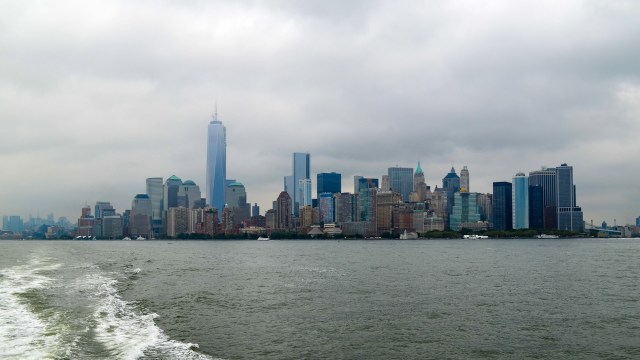Scientists sound the alarm after new research points to growing invisible threat putting coastal cities at risk: 'We need very dramatic action'

A new study that accounts for seawater intrusion between ice sheets estimates that other projections about future sea level rise could be too modest.
What's happening?
As detailed by the Guardian, researchers used computer models to analyze how ocean water intruding into ice sheet cavities impacted melting rates. They believe this could create a "tipping point" where the sheets lose ice much faster than expected.
"[Seawater intrusion] could basically be the missing piece," study leader Dr. Alexander Bradley told the news outlet. "... And there's a lot of evidence that when you do include it, the amount of sea level rise the models predict could be much, much higher."
The Guardian also highlighted a previous study that suggested seawater intrusion could cause some Antarctic ice sheets to lose ice around two times more quickly. The latest findings were published in the journal Nature Geoscience.
Why is this concerning?
As it stands, models by the National Oceanic and Atmospheric Administration project large swaths of the West and East Coasts will eventually succumb to the oceans, but the latest analysis suggests the tipping point could be closer than initially believed.
Almost 40% of the global population lives less than 65 miles from a coast, according to the UN Environment Programme. If sea levels continue to rise, those communities could be at a further increased risk of property and livelihood loss, as well as displacement.
Watch now: Alex Honnold shows off his new Rivian
Human activities have directly impacted our seas, with the burning of dirty fuels like gas, oil, and coal overwhelmingly driving the overheating of our planet.
According to NOAA, the 10 hottest years on record have all occurred in the past decade, with 2023 being the warmest ever recorded. These warmer temperatures are causing ice sheets to melt and ocean water to expand, thus contributing to rising sea levels.
The higher water levels also increase the risk of costly damage and deadly flooding during extreme weather events. Strong hurricanes, for example, have become more frequent as a result of our changing climate, with rapid intensification a growing phenomenon.
What can be done about rising sea levels?
Floating homes and land reclamation projects are among the initiatives providing hope that we can adapt to rising sea levels. However, Dr. Bradley also called for bold action to help preserve our coastal communities.
"With every tenth of a degree of ocean warming, we get closer and closer to passing this tipping point…" Dr. Bradley told the Guardian. "So we need very dramatic action to restrict the amount of warming that takes place and prevent this tipping point from being passed."
The global community still has a ways to go to reduce its reliance on dirty fuels and meet its agreed-upon pollution-reduction goals, but there have been promising developments. For example, in 2023, clean energy accounted for a record 30% of electricity worldwide, with wind and solar installations leading the way, according to a report by Ember.
While the appointment of 2024 United Nations Climate Change Conference president Mukhtar Babayev has been criticized because of his past ties to an oil company, there is also optimism that November's COP29 event will lead to continued cooperation to protect our planet.
Supporting eco-friendly policymakers at home can support efforts at a systemic level. There are also simple ways to reduce the pollution you generate, like by unplugging energy vampires. Doing this can even save you around $165 on your electric bills every year.
Join our free newsletter for cool news and cool tips that make it easy to help yourself while helping the planet.
Scientists sound the alarm after new research points to growing invisible threat putting coastal cities at risk: 'We need very dramatic action' first appeared on The Cool Down.
Welcome to Billionaire Club Co LLC, your gateway to a brand-new social media experience! Sign up today and dive into over 10,000 fresh daily articles and videos curated just for your enjoyment. Enjoy the ad free experience, unlimited content interactions, and get that coveted blue check verification—all for just $1 a month!
Account Frozen
Your account is frozen. You can still view content but cannot interact with it.
Please go to your settings to update your account status.
Open Profile Settings